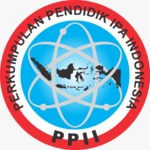Pengembangan Lembar Kerja Peserta Didik (LKPD) Berbasis Problem Based Learning (PBL)
DOI:
https://doi.org/10.29408/kpj.v7i3.24200Keywords:
LKPD, Based On Problem Based Learning, ElasticityAbstract
This research aims to produce LKPD problem based learning on the subject of elasticity, to determine the feasibility of LKPD of learning media based on problem based learning on the subject of elasticity, and to determine the effectiveness of LKPD learning media based on problem based learning on the subject of elasticity. The development model used in this research is the 4D model, namely define, design, develop and disseminate. Testing of problem based learning LKPD development products is carried out through validation from material experts, media expertest, subject response questionnaires. Data analysis techniques resulting from the distribution of questionnaires include tabulating data from each validator and calculating the percentage. Based on research results from 3 mateerial experts, it shows that the LKPD is included in the very decent category with a percentge score of menwhile, the assesment resultss from media experts show that the quality of the LKPD is included in the very decent category with a percentage score of percentage. And based on the assessment results of 2 subject teachers, it shows that the qulity of the LKPD is included in the very decent ctegory with score percentage ofReferences
Amri, sofan, dan Lif khoiru ahmadi. (2010). Kontruksi Pengembangan Pembelajaran (Pengaruh Terhadap Mekanisme dan Praktik Kurikulum). Jakarta: Prestasi Pustakaraya
Maulidar , “pengembangan LKPD berbasis pbl ( problem based lerning) pada materi laju reaksi di sma negeri 1 simpang kiri”. Skripsi, (banda aceh: fakultas tarbiyah dan keguruan universsitas islam negeri ar-raniry, 2019).
Nisa, N. A. K., Widyastuti, R., & Hamid, A. (2018, July). Pengembangan Instrumen Assessment Higher Order Thinking Skill (HOTS) pada Lembar Kerja Peserta Didik Kelas VII SMP. In Prosiding Seminar Nasional matematika dan pendidikan matematika (Vol. 1, No. 2, pp. 543-556).
Puspita, E. (2011). Pengaruh Model Problem Based Learning (PBL) terhadap Motivsi Dan Prestasi Belajar pada Mata Kuliah Kebutuhan Dasar Manusia (Studi Kasus di Akper Bahrul Ulum Jombang) (Doctoral dissertation, UNS (Sebelas Maret University)).
Rahmi, F., Iltavia, I., & Zarista, R.H. (2021). Efektifitas Pembelajaran Berorientasi Matematika Realistik Untuk Membngun Pemahaman Relasional Pada Materi Peluang. Jurnal Cendekia: Jurnal Pendidikan Matemaatika, 5(3), 2869-2877.
Sugiyono. (2016). Metode Penelitian Kuantittif Kualitatif Dan R&D. Bandung: CV Alfabeta.
Sugiyono. 2008 Metode Penelitian Kuantittif Kualitatif Dan R&D. Bandung: Alfabeta.
Suhendar, U., & Ekayanti, A. (2018). Problem Based Learning Sebagai Upaya Peningkatan Pemahaman Konsep Mahasiswa. Jurnal Dimensi Pendidikan Dan Pembelajaran,6(1), 15-19.
Vitrianingsih, D. (2021). Pengembangan Lembar Kerja Siswa (LKS) Berbasis Problem Based Learning (PBL) Pada Materi Elastisitas Dan Hukum Hooke Kelas XI Di SMA Negeri 1 Palangka Raya (Doctoral Dissertation, IAIN Palangka Raya).
Yuliska, R., Syafriani, S., & Ramli, R. (2020). Efektivitas pengembangan LKPD Fisika SMA/MA Berbasis inquiry Training untuk meningkatkan kemampuan berpikir kreatif peerta didik. Jurnal eksakta pendidikan (JEP), 4(1), 89-96









